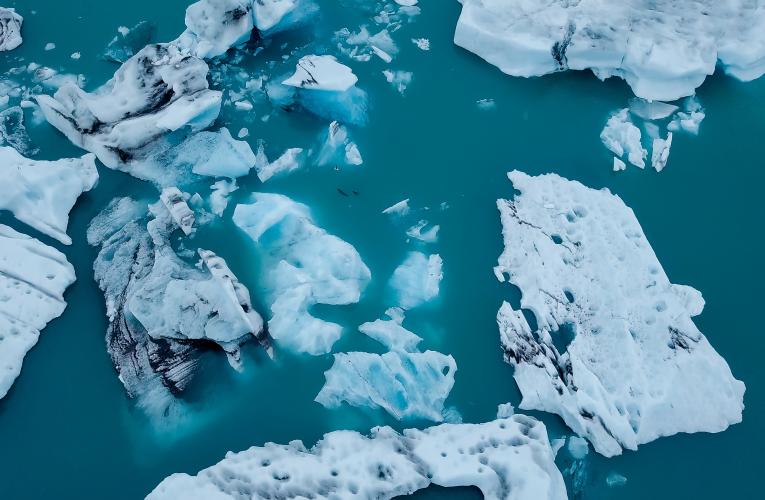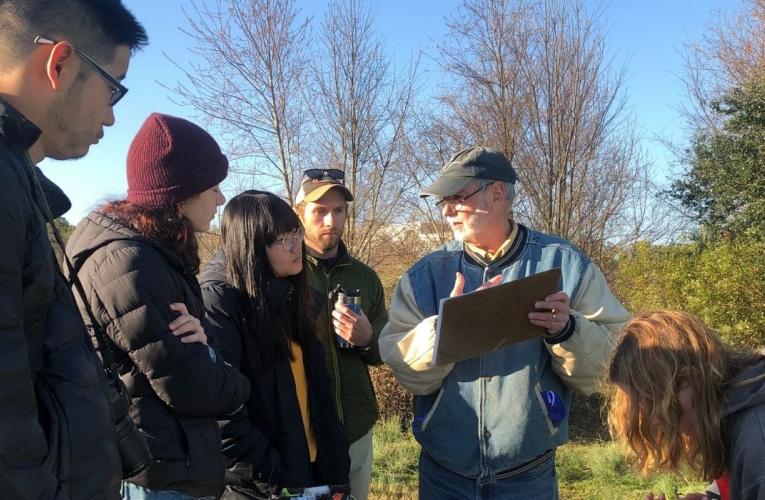Curricula
The courses are in three required categories, and in some categories there are various courses that can be used to meet the requirements
Natural/Physical Science: 1 course
ECS 511: The Climate System
Components of the climate system: observed climate change, concept of energy balance, basic circulation of the atmosphere and ocean, introduction to climate models, sample applications of climate models, interactions between the atmosphere/ocean/ and biosphere, land surface, cryosphere (snow and ice), and chemistry of the atmosphere. Prerequisite: consent of instructor.
Instructor: Wenhong Li
Lecture
3 Credits
ECS 550/ENV552: Climate and Society
Consideration of four major roles of land in the United States: as a producer of commodities, financial asset, component of environmental systems, and location of development. Analysis of market allocation of land, market failure, role of public planning and regulation.
Instructor: Drew Shindell
Lecture
3 credits
Social Science: 1 course
PUBPOL 585K/ENV640: Climate Change Economics and Policy (r)
This course explores the economic characteristics of the climate change problem, assesses national and international policy design and implementation issues, and surveys the economic tools necessary to evaluate climate change policies. Discussion-oriented requiring high degree of student participation. Course objectives are increased comprehension of economic aspects of climate change and ability to apply tools of economic analysis to climate policy and the responses of firms and households to it. Course designed for graduate and advanced undergraduate students.
Instructor: Billy Pizer
Lecture
3 credits
LAW 520/ENV502: Climate Change and the Law
This seminar will examine global climate change and the range of actual and potential responses by legal institutions, in the U.S. and internationally. In so doing it will also explore fundamental questions about legal response to looming crises using climate change as the focal point of a broader discussion. Can legal institutions deal with such mega-problems? Will doing so lead to basic changes in legal institutions?
Instructor: Jonathan Wiener
Lecture
2 credits
Other course with the approval of the certificate faculty director
Modeling: 1 course
ECS 568S: Integrated Assessment Modeling—Examining Strategies for Meeting Energy and Environmental Goals
The primary objective is to provide students with a hands-on opportunity to use one such Integrated Assessment Model—the Global Change Assessment Model with state-level resolution (GCAM-USA)—to examine the air quality and GHG implications of new and emerging energy system technologies. To facilitate the use of GCAM-USA, students will use the GLIMPSE decision support software being developed at EPA. GLIMPSE provides a user interface for GCAM, which facilitates developing and running scenarios as well as visualizing results. Team projects - examinations of electric vehicles, renewable electricity, energy efficiency in buildings and potentially other topics of interest to students.
Instructor: Drew Shindell and Dan Loughlin
Seminar
3 credits
Other course with the approval of the certificate faculty director
Elective: 1 course
Specializing electives within the student’s concentration area (partial list below)
ECS 509S: Paleoclimate - Typically taught in Spring
Nature and mechanisms of climate variability throughout Earth history. Topics include general theory of climate, paleoclimate modeling and comparisons with observations, methodologies of reconstructing past climate variations, the observational record of paleoclimate extending from the Precambrian through the Ice Ages and Holocene to present, and the impact paleoclimate on biotic evolution/paleogeography and human cultural history. Consent of instructor required.
Instructor: Paul Baker
Lecture
3 credits
ECS 551S: Global Environmental Change - Typically taught in Spring (infrequent offering)
Topics in the seminar will include climate change, earth surface alteration, prediction, water and carbon cycling, sea-level rise and coastal erosion, biodiversity, fossil fuels and energy resources, water resources, soil fertility, human impact on coastal zone ecosystems. Prerequisite: consent of instructor.
Instructor: Paul Baker
Lecture
3 credits
ECS 715: Introduction to Coastal Environmental Change - Typically taught in Spring
Nearshore physical processes responsible for the evolution of beaches and barrier islands. Various problems and possible solutions arising from human development of retreating shorelines. Involves a field trip and research paper.
Instructor: Brad Murray
Lecture
3 credits
ENV 605: Air Quality: Management - Typically taught in Fall
Management systems are discussed, including varied approaches used to address criteria air pollutants, air toxics, mobile sources and acid deposition. Course prepares students to understand systems approach to apply science and technical information to inform policy decisions affecting air quality; understand and be conversant in varied approaches to manage air quality to meet policy objectives; be familiar with major common air pollutants and air quality management approaches applied to each and why approaches vary.
Instructors: Jim Zhang and John Vandenberg
Lecture
1.5 Credits
ENV 623L: Ecological Diversity and Climate Change - Typically taught in Fall (infrequent offering)
Evaluates the science of biodiversity and climate change, including changes happening now, in the past, and what we can expect in the future. Topics include forest diebacks, intensifying drought, increased wildfire, insect and pathogen outbreaks, and poleward migrations of land and marine populations. Analytical tools used to quantify change include elements of basic distribution theory, data manipulation in R, and examples of simulation methods. Each lab implements one or more models, including regression, GLMs, and species distribution modeling. Prerequisites: calculus, statistics.
Instructor: Jim Clark
Lecture
3 credits
ENV 724: Landscape Analysis and Management - Typically taught in Spring
This course is a task-oriented perspective on landscape ecology and management. The tasks include habitat classification, sampling designs for inventory and monitoring, site selection and prioritization, modeling landscape change, and integrated assessment. These practical tasks are couched in the logical framework of adaptive management. Course consists of lectures and hands-on exercises in the computer lab.
Instructor: Dean Urban
Lecture and Lab
4 credits
ENV 739: Introduction to Atmospheric Chemistry - Typically taught in Spring (infrequent offering)
A broad overview of the science of oxidant chemistry in the atmosphere. Basic physical and chemical concepts relevant to the understanding of atmospheric chemistry; several contemporary topics discussed from a process-level perspective. Topics include atmospheric structure and chemical composition; atomic structure and chemical bonds; chemical thermodynamics and kinetics; atmospheric radiation and photochemistry, tropospheric and stratospheric ozone chemistry; aqueous-phase atmospheric chemistry; atmospheric aerosols; and air quality modeling. Prerequisites: one college-level course each in chemistry and calculus.
Instructor: Prasad Kasibhatla
Lecture
3 credits
How to Pursue
Students who wish to pursue this certificate program should complete the Add Certificate Request Form.
For more information on certificate courses, please contact the Certificate Director, Wenhong Li.
Forms




